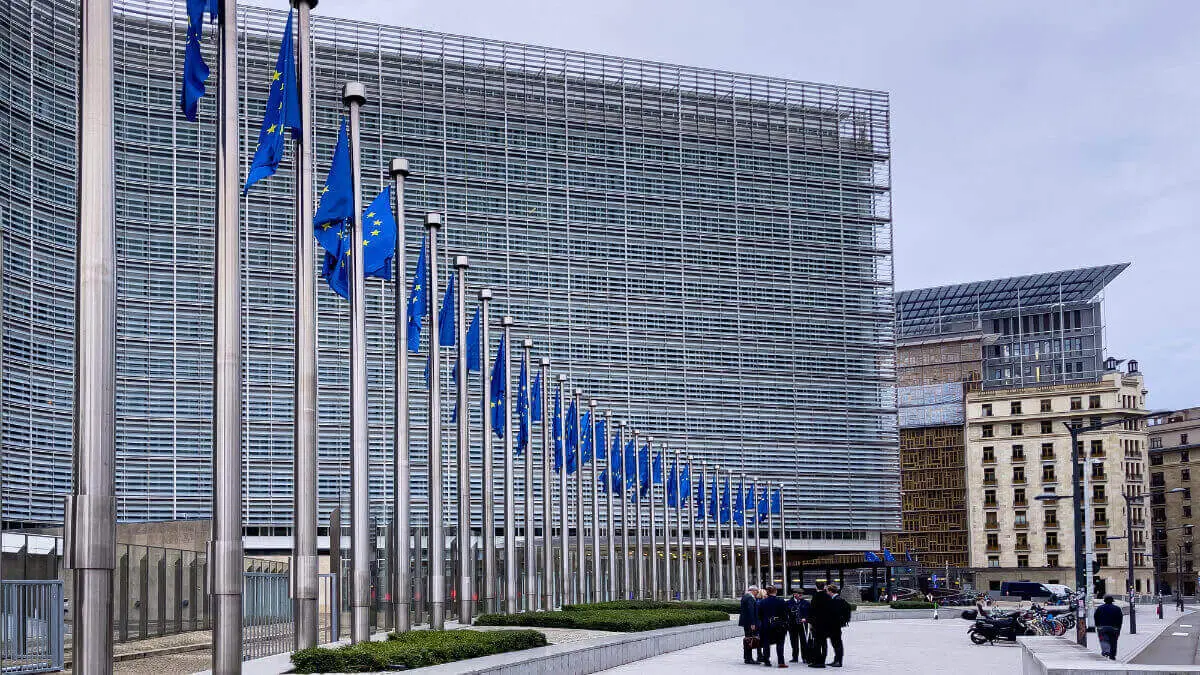The democratic disillusionment of a Europe trying to move forward

In the most recent elections in Portugal and Romania, the most centrist political positions were the hardest hit, while the far right continued to gain ground.
These are increasingly turbulent processes that also lead to the need for (often unthinkable) government pacts or coalitions, resulting in weak governments that are unable to sustain themselves over time.
Portugal is a case in point: the elections on 18 May were the fourth parliamentary elections in the last five and a half years. This is a country where the political stability observed over the last four decades has also been broken, with centre-right social democrats, such as the centre-left Socialist Party, governing and alternating power.
The latest corruption scandals and the Portuguese people's concerns about wages, inflation, loss of purchasing power and the future of employment have undermined their confidence in the traditional parties.
The emergence of Chega (Enough), a far-right populist party led by André Ventura, has captured the attention of disenchanted voters, especially younger voters.
The rhetoric of far-right populist groups in Portugal and other EU countries is identical: it always includes attacks on immigration, freedom of expression, minorities and so-called ‘woke’ politics. In Portugal, the conservative Democratic Alliance recently won, but without a majority, while the Socialists and the far right tied for second place after a historic debacle for the left.
Portuguese Prime Minister Luis Montenegro may be re-elected, but he will need the Socialist Party, whose leader has resigned after learning of the result, or the far-right Chega, which achieved a record 22% of the vote, to facilitate his governability.
However, the main focus of concern has fallen on Romania: the elections have reopened the Soviet wound, forcing voters to choose between a political force with a pro-European Union and pro-EU policies, or another that talks of breaking away from the EU under the illusion that the Soviet era was better.
The old Eastern Europe is still too young in terms of democracy, considering that the Iron Curtain began to crumble in 1989, after the fall of the Berlin Wall, to the detriment of Soviet influence in countries such as Poland, Romania, Hungary, Czechoslovakia, Bulgaria, Albania and East Germany.
Ursula von der Leyen, President of the European Commission, was particularly concerned about the electoral situation in Romania, given that its citizens were returning to the polls six months after the country's Constitutional Court annulled the results of last November's presidential elections. The first round took place on 4 May and the second on Sunday 18 May.
In a historic decision, the Constitutional Court invalidated the November election results that gave victory to the far-right pro-Russian Calin Georgescu. The argument for overturning the results was based on various allegations of illegal funding from the Kremlin in favour of Georgescu.
With the most recent repeat election, the winner is Nicusor Dan, a pro-European mathematician who served as mayor of Bucharest and has now been elected president.
Dan's victory has brought temporary relief to the EU. The intention in Brussels is for centrist governments to continue to proliferate, although in reality it is the far-right populist forces that continue to grow in most countries.
Since the July 2024 elections, when the EU government and the European Parliament were renewed, the results themselves showed that it is the Eurosceptic parties that continue to win votes.
In the June 2024 elections to choose the new European Parliament and EU government, the two far-right parliamentary groups went from 137 to 159 seats: the Conservatives and Reformists group is the fourth largest force in the European Parliament with 72 MEPs; and the other group, Identity and Democracy. To these are added the non-attached groups. To get an idea of the phenomenon of the spread of the far right, in these elections, the European socialists lost four seats, leaving them with 135 seats in the European Parliament.
The crisis of social democracy
Within the political crisis currently affecting the European Union, the social democratic political model is the one currently under the most attack. In this regard, researcher James Newell, in his essay ‘European integration and the crisis of social democracy’, argues that this can be explained by changes on the supply side and on the political demand side.
‘On the demand side, there has been a decline in the size of the manual working class and the emergence of a new social division between the winners and losers of globalisation,’ he said.
In Italy, Newell, an adjunct professor at the University of Urbino, argues that, on the demand side, there has been a decline in the size of the manual working class and the emergence of a new social divide between the winners and losers of globalisation.
‘Social democrats have found it difficult to keep the two together in coalition because their commitments to economic redistribution are favoured by the losers, but not necessarily by the winners, while their commitments to diversity are favoured by the winners, but not necessarily by the losers,’ he argues.
On the supply side, social democracy has lost its appeal because some goals have been achieved and are no longer controversial; and because other goals, Newell adds, are difficult to achieve due to the decline of national governments' power in a globalised economy.
The Economist recently addressed the paradox that has trapped Europeans living in the most democratic region of the world, yet people are increasingly fed up.
In the Global Democracy Index, Europe once again achieved the best results in the annual report published by The Economist Intelligence Unit in its latest edition.
This analysis group rates 167 countries on a scale of zero to ten, based on the functioning of government, civil liberties and other criteria. Countries are grouped into four categories: full democracies; flawed democracies; hybrid regimes and authoritarian regimes.
According to this result, nine of the ten most democratic countries in the world are in Western Europe. Europe also accounts for more than half of the 25 countries classified as full democracies.
In this annual study, researchers highlighted Europe's resilience and the strength of its institutions, as well as the functioning of its independent courts.
Even so, some Europeans have an increasingly bleak view of their democracies. A Pew survey in 2024 found rising dissatisfaction across much of Western Europe.
‘Nearly 80% of respondents in Greece, which ranks twenty-fifth in the study, said they were dissatisfied with the way democracy is working. Similarly, in the United Kingdom, 60% of respondents said that democracy is not working as well as it should; and in countries such as Germany and the Netherlands, satisfaction with democracy continues to outweigh discontent, but support has declined since 2021 in favour of anti-establishment and far-right parties’, the recently published analysis emphasised.
What worries Europeans? Inflation and economic anxiety have undermined confidence in European leaders. A changing media landscape and cultural frictions over immigration, identity and social status have sharpened political divisions.
This change of cycle has also seen a rise in populism following Donald Trump's return to the White House; in fact, there has been a greater ideological convergence between these far-right groups and Trump and several American businessmen, such as Elon Musk.



